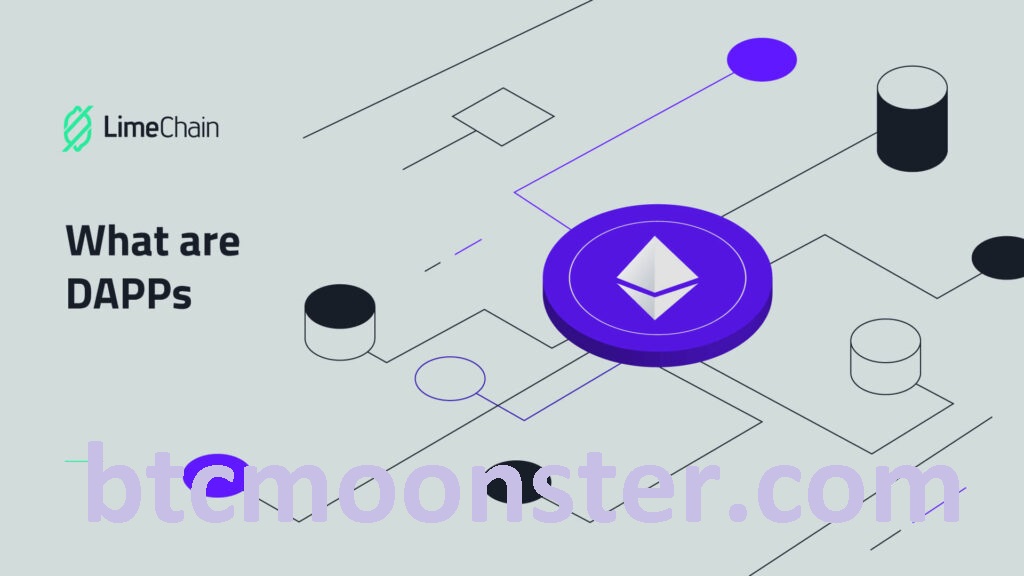Exploring Distributed Applications (dApps) on the Ethereum Platform:Blockchain technology has ushered in a new era of innovation and possibilities, and Ethereum stands at the forefront of this revolution. Ethereum, often referred to as a decentralized platform for building decentralized applications, has introduced the concept of distributed applications, commonly known as dApps. These dApps have opened up a world of opportunities for developers and users alike, transforming traditional centralized systems into decentralized, secure, and transparent networks. In this article, we will delve into the concept of distributed applications on the Ethereum platform, exploring their characteristics, benefits, and impact on various industries.
Understanding Distributed Applications (dApps)
Distributed applications, or dApps, are essentially software applications that operate on a decentralized network of computers, utilizing blockchain technology as their underlying infrastructure. Unlike traditional applications that run on a centralized server, dApps operate on a decentralized network of nodes, making them resistant to censorship, downtime, and single points of failure. This decentralized nature empowers users by giving them greater control over their data and transactions, eliminating the need for intermediaries.
Characteristics and Benefits of dApps
Distributed applications on the Ethereum platform share several key characteristics that set them apart from traditional applications. One of the most notable features is their transparency. All transactions and data interactions on dApps are recorded on the blockchain, providing a publicly accessible and tamper-proof record of activities. Additionally, dApps are open-source by design, allowing anyone to audit their code and contribute to their development, fostering a collaborative and innovative ecosystem.
The benefits of dApps extend beyond transparency and open-source collaboration. They enable peer-to-peer transactions, cutting out intermediaries and reducing transaction fees. Moreover, dApps are often interoperable, meaning they can communicate and share data seamlessly, creating a more interconnected and efficient network. This has paved the way for various use cases, including decentralized finance (DeFi), supply chain management, gaming, social networks, and more.
Impact on Industries and Future Potential
The introduction of dApps has disrupted various industries and challenged traditional business models. In the financial sector, decentralized finance platforms have emerged, offering users the ability to lend, borrow, trade, and earn interest without relying on banks or financial intermediaries. Supply chain management has also benefited from dApps, as they enable real-time tracking and transparency across complex supply chains.
Looking ahead, the potential for dApps is vast. As blockchain technology continues to mature, we can expect to see more innovative and creative use cases across industries. The adoption of dApps is likely to expand as more users recognize the benefits of decentralized systems and their ability to reshape various aspects of our daily lives.
In conclusion, distributed applications (dApps) represent a significant shift in how software applications are developed and utilized. Operating on the Ethereum platform, dApps offer transparency, security, and user empowerment, challenging traditional centralized models. Their impact on industries is already visible, and their future potential is immense. As blockchain technology evolves and adoption grows, dApps are poised to reshape industries and redefine the way we interact with technology and each other.
Understanding the World of Distributed Applications (dApps) on the Ethereum Network
The emergence of blockchain technology has revolutionized the way we perceive and interact with digital systems. At the forefront of this technological advancement is Ethereum, a decentralized platform that has introduced the concept of distributed applications, or dApps. In this article, we delve into the fascinating realm of dApps on the Ethereum network, exploring their intricacies, benefits, and potential impact on various industries.
Decoding Distributed Applications (dApps)
Distributed applications, also known as dApps, are a remarkable evolution of traditional software applications. Unlike conventional apps that rely on centralized servers, dApps operate on a decentralized network of computers, utilizing blockchain technology to achieve consensus and data integrity. This decentralized architecture offers users a secure, transparent, and censorship-resistant environment for various transactions and interactions.
Key Characteristics and Advantages of dApps
Distributed applications on the Ethereum platform exhibit several defining characteristics that differentiate them from their centralized counterparts. Transparency lies at the core of dApps, as all transactions and actions are recorded on the blockchain, ensuring an immutable record accessible to all participants. Moreover, dApps are typically open-source, enabling collaboration and innovation from developers worldwide, leading to rapid evolution and refinement.
The benefits of dApps extend beyond transparency and open-source development. They provide users with greater control over their data and assets, eliminating intermediaries and central authorities. This peer-to-peer nature reduces costs, enhances security, and fosters trust among participants. Additionally, dApps often offer programmability through smart contracts, enabling self-executing agreements without the need for intermediaries.
Diverse Applications and Future Potential
The versatility of dApps spans across multiple industries, demonstrating their transformative potential. In finance, decentralized finance (DeFi) platforms enable users to access various financial services without traditional institutions. Supply chain management becomes more efficient and transparent through dApps, which provide real-time tracking and traceability of goods. Other sectors, such as gaming, healthcare, and social networking, are also exploring the integration of dApps to enhance user experiences and eliminate centralized control.
As blockchain technology evolves and mainstream adoption continues, the potential applications of dApps are boundless. Their impact on industries, governments, and society at large has only scratched the surface. With ongoing research, development, and community involvement, dApps are poised to redefine traditional systems and reshape the digital landscape.
In conclusion, distributed applications (dApps) represent a revolutionary shift towards decentralized and transparent digital ecosystems. Operating on the Ethereum network, dApps offer unparalleled benefits in terms of transparency, control, and innovation. Their potential applications across industries signal a paradigm shift that promises to redefine the way we interact, transact, and collaborate in a digital age.
